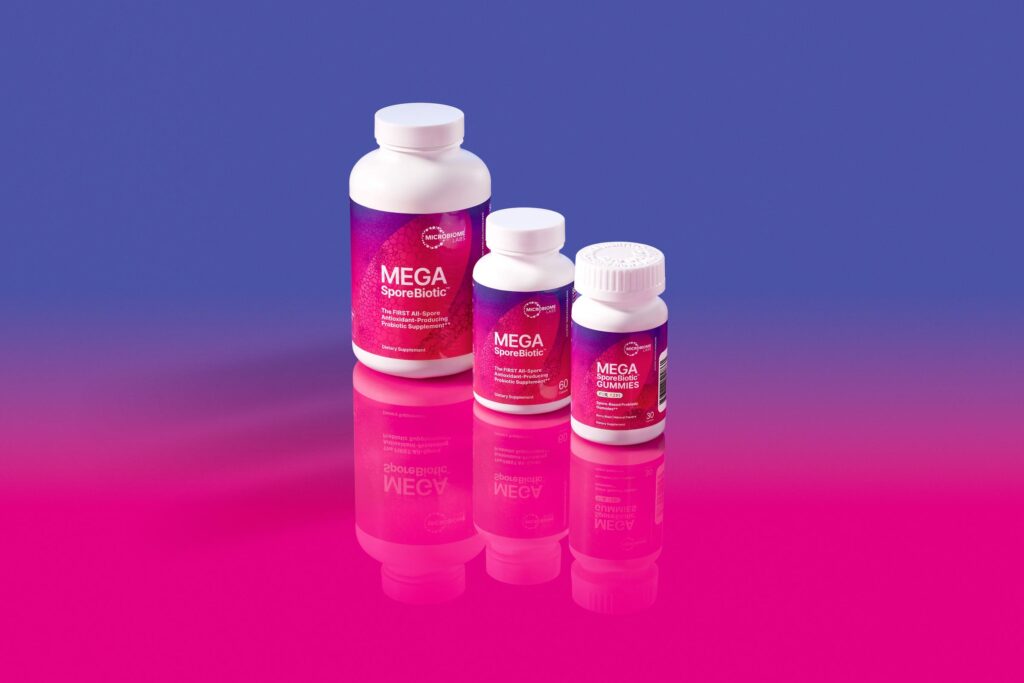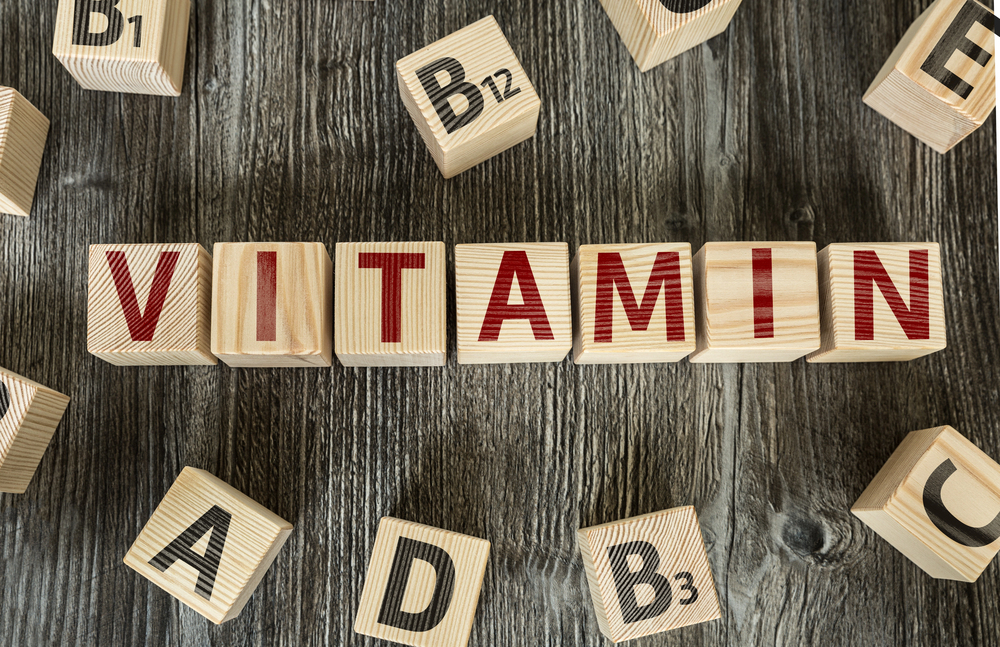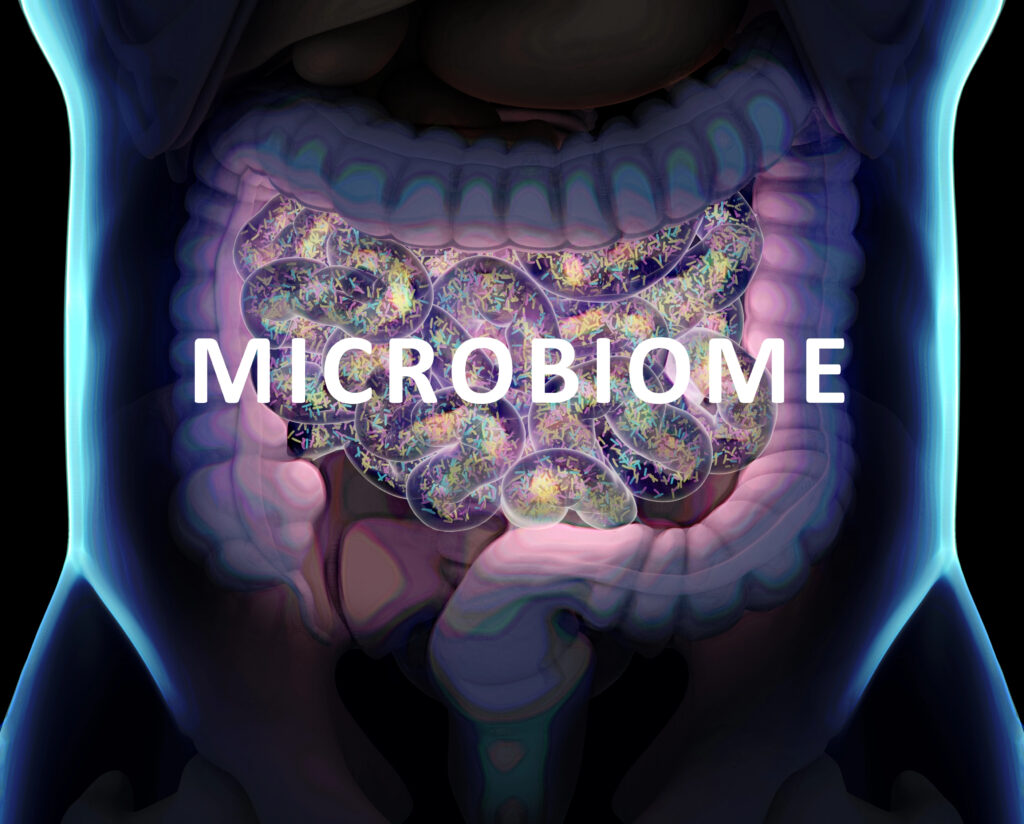Stress, sleep, & mood sounds like a lot to tackle all at once! Yet, they are so intertwined that it’s difficult to separate them. Managing stress leads to a better mood and better sleep. Better sleep leads to a better mood and better stress management. Here are our top tips for stress:
Magnesium
Magnesium is THE anti-stress mineral. According to the USDA, at least 50% of Americans are deficient in this important mineral. It is involved in over 300 biochemical reactions in the body, including those affecting neurotransmission, energy production, muscle function, blood sugar control, inflammation control, DNA repair, and bone health, to name a few.
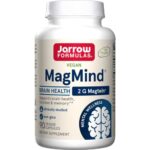
When stressed, we burn through magnesium more quickly, so those with stressful lives need more. Magnesium can relax you day or night, affect your hormones, and manage your blood sugar, which needs to be stable for sleep.
The best forms of magnesium for stress and sleep are magnesium threonate and magnesium glycinate. The former passes the blood-brain barrier more readily and the latter is chelated to glycine, which has a calming effect on the nervous system.
Manage your Stress with Herbs
A class of herbs called nervines are excellent for calming and fortifying the nervous system. These herbs may be used day or night. If you use a tincture, or liquid form, you control the dose. You can use smaller doses during the day when you want to be alert yet calm, and higher doses at night when you are using them to help with sleep. These herbs include:
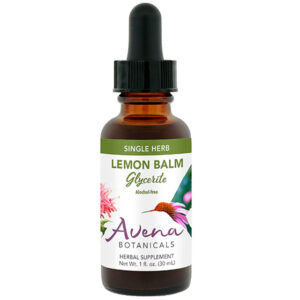
- Valerian Root
- Lemon Balm
- Gotu Kola
- Hops
- Passionflower
- Chamomile
- Milky Oats
Talk to our staff about what herbs may be best for you. Valerian is the most sedative, while others like lemon balm and skullcap promote calming without drowsiness. As a side benefit, they have antiviral qualities. Chamomile is excellent for those for whom an upset stomach accompanies stress due to its antibacterial affects and ability to calm the stomach. Gotu kola is considered “nerve food” for the nervous system and may be good for a nervous system that has been damaged by long term stress.
You can find these herbs alone, or in combination with one another. As always, herbs must be checked against any medication you take for any reason to make sure there are no known interactions! Be sure to make our staff aware of any medications you are on.
Cannabinoids for Calm, Focus, and Sleep
Your body has something called the endocannabinoid system, which is responsible for homeostasis, or balance, in the body. Your body can generally produce its own cannabinoids from certain foods and other nutrients. However, in times of high stress or illness, the body may not be able to make enough, and you need external sources to come into balance.
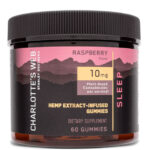
Since there are receptors for cannabinoids throughout the immune and nervous systems, plant-derived cannabinoids like CBD, CBN, and CBG can positively affect these systems. This accounts for the role of CBD, CBN, and CBG in relieving stress, agitation, and inflammation, and in promoting sleep.
CBD and other cannbinoids can interact with medications, so make our staff aware of any prescriptions if you plan to supplement with these.
Adaptogens for Stress Resilience, Mood, & Sleep
Adaptogens are a class of herbs that have the action of bringing balance to the body. They help the body react better to stress and thus can help with energy, focus, immune health, mental performance, and mood. They are typically from the root of a plant and like the root, can provide nutrients that positively affect the whole body. This is why they impact so many different systems in the body.
Certain adaptogens are better for specific purposes. For example, you will find ashwagandha in many sleep formulas. It also assists in healthy thyroid hormone production. Rhodiola and lemon balm are excellent for mood, while maca is great for balancing hormones and energy. Ginseng has been studied for its positive effect on both immune resilience and mental performance.
Adaptogens are excellent for overall resilience and thus can help you manage stress and promote better mood and sleep. As above, make sure we check for interactions with any medications you take.
Precursors to neurotransmitters
Certain amino acids or their derivatives can promote your “feel good” or calming neurotransmitters. Some individuals may need them in addition to what they get in food due to genetics or other issues. A few examples are l-tryptophan, 5-HTP, l-theanine, and GABA.
L-tryptophan and 5-HTP are direct precursors of serotonin, the feel-good hormone. Taking more precursors of this calming neurotransmitter can positively affect mood. You need adequate B vitamins and vitamin C to properly make the conversion to serotonin, so make sure those are abundant in your diet or supplement them.
GABA is a calming neurotransmitter that opposes glutamate, a stimulating one. L-theanine can promote calming by mildly blocking glutamate receptors or by promoting GABA, another calming neurotransmitter. Directly supplementing GABA may work for certain individuals.
Melatonin
Melatonin is one of the best-known nutrients for sleep, but only works if you are deficient in melatonin. Melatonin regulates the sleep-wake cycle and is produced in response to darkness. Its production in the body declines after 50 yrs old. Since melatonin is made from serotonin in the body, those with low serotonin may have low production of it and hence, trouble sleeping.
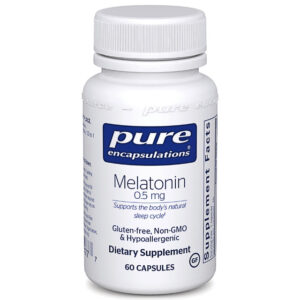
Melatonin can be especially helpful for those with low serotonin, that do shift work, that have blue light exposure into the evening hours, and that travel between time zones.
The key to melatonin is to take it several hours before bed. If you go to sleep at 11:00, it is best to take it at 8ish. This is when your body would naturally begin to produce it. Staying away from devices where your eyes are exposed to blue light in the evening can also increase your natural production of melatonin.
Love Your Gut!
New research shows that gut health is inextricably tied to mood and overall health. A recent Korean study in Frontiers in Nutrition associated higher consumption of probiotics and prebiotics in the diet with a reduction in anxiety. This makes sense since 70% of our serotonin is made in the gut. A healthy gut means better serotonin production.
Many things can upset microbial balance including antibiotics, too much alcohol, stress, genetics, toxins in food, air, and water, and processed foods. To bolster your gut health and in turn improve your mood, take the following tips:
Eat 35 different plant foods per week. A greater variety of plant foods produces better microbial diversity in the gut, which is associated with better immune, digestive, and overall health. Plant foods contain a variety of prebiotics that your good bacteria grow on. If you don’t get enough plant foods in your diet, I recommend a supplement like Prebiotic Fiber 35 every day.
Manage stress (see above). Even mild stress can cause negative changes in the microbiome.
Eat Fermented Foods. Fermented foods have many benefits including the production of B vitamins, organic acids, antioxidants, and antimicrobial agents. They also enhance digestion of your food. Some studies have shown that eating fermented foods on a regular basis can increase beneficial microbes by 10,000-fold.
Be Aware of Medication’s Effects on the Microbiome. Medications that reduce stomach acid, antibiotics, antidepressants, and some medications used for ADD/ADHD can harm the microbiome. Be aware of these and supplement accordingly.
Decrease/Avoid Sugar. Too much sugar can promote the growth of pathogenic bacteria and unbalance the gut. Sugar feeds certain microbes as well as pathogenic yeast.
I know that’s a lot to consider! The above will help you when the basics of a clean diet, rest, fresh air, and consistent exercise are not enough. Please talk with our staff about what might be right for you or make an appointment with me if you need more personal help. You can contact me at lbednarnutrition@gmail.com or book an appointment HERE

